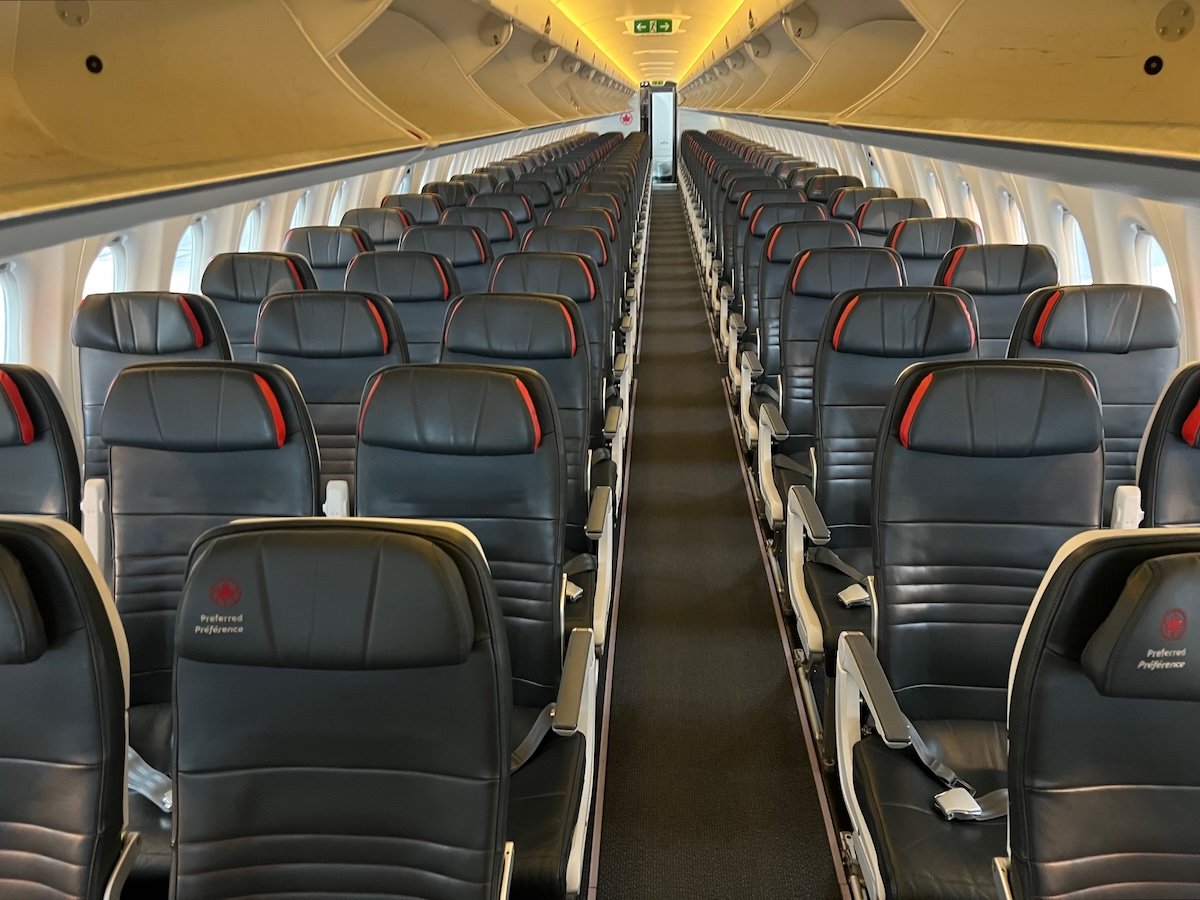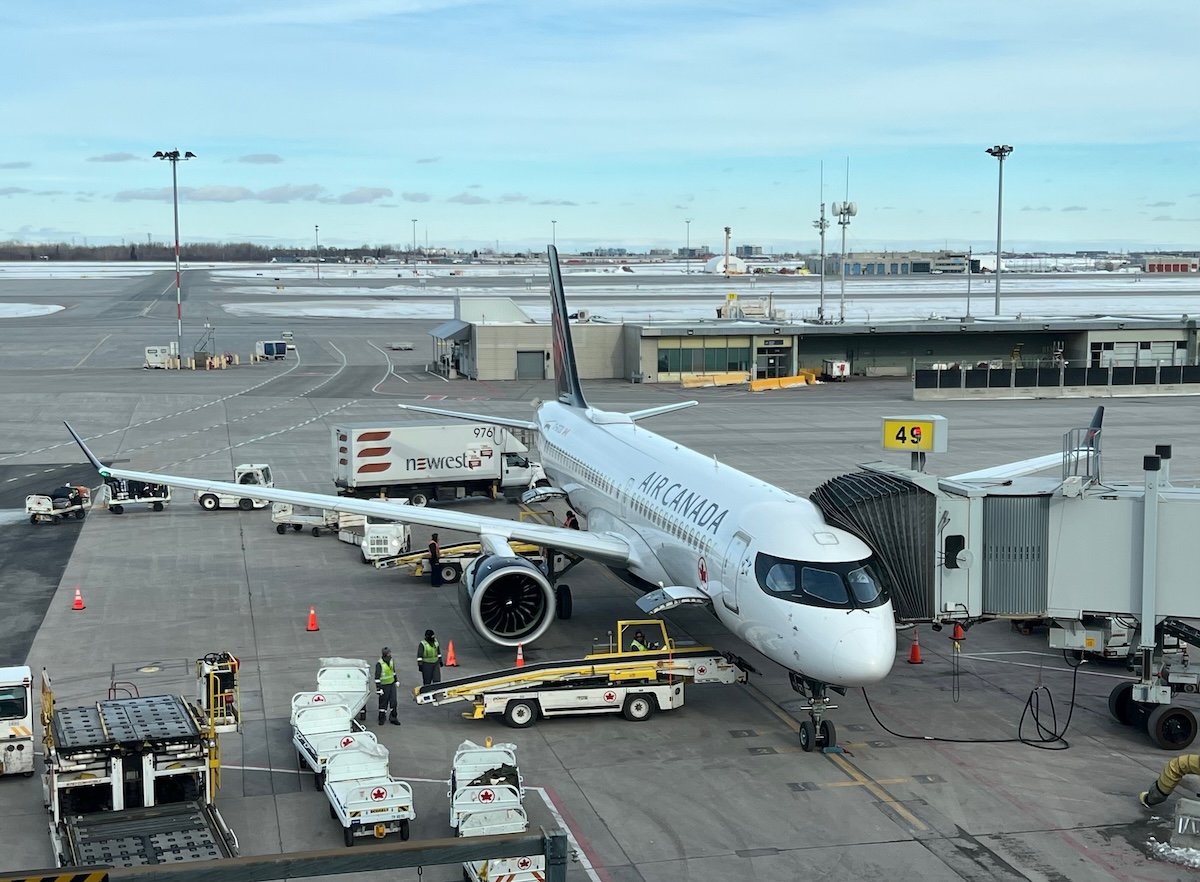In December 2024, Air Canada made an exciting passenger experience announcement, embracing a trend that we’re increasingly seeing among airlines. There’s an exciting update, as this change is live as of today.
In this post:
Air Canada now offers free Wi-Fi on 88% of fleet
Air Canada plans to roll out fast and free Wi-Fi throughout its network for all Aeroplan members. The first phase of this is live as of today (May 1, 2025), whereby the airline has started offering this on North America and Sun market routes, which includes Mexico and the Caribbean.
This covers 88% of the fleet, and applies to Air Canada mainline, Air Canada Rouge, and Air Canada Express, assuming the planes are equipped with connectivity. The plan is to expand this to long haul international flights in 2026. The service is sponsored by Bell.
This builds on the complimentary Wi-Fi offerings that Air Canada has rolled out in the past. This includes offering free Wi-Fi in Premium Rouge since 2022, and rolling out free inflight messaging for Aeroplan members in 2023.
What’s cool is that Air Canada is even expanding the aircraft on which it offers Wi-Fi. For example, later in 2025, Air Canada will install Wi-Fi on its Q400 turboprop aircraft, which are partly based at Toronto Billy Bishop Airport (YTZ). This is clearly a competitive move against Porter, and it will be the first time we see fast and free Wi-Fi on this turboprop.
Here’s how Mark Nasr, Air Canada’s EVP of Marketing and Digital, and President of Aeroplan, describes this:
“Quality connectivity has become indispensable for all travelers. Starting today we’re thrilled to offer complimentary Wi-Fi on North American, Mexican and Caribbean flights for Aeroplan Members, by partnering with Bell. This initiative underscores Air Canada’s focus on elevating the customer experience, with leadership in providing streaming quality connectivity, at a pace unmatched by other airlines — at home and around the world. We now offer Wi-Fi on 88 per cent of our fleet, with the remaining installations to be completed by early 2026. This will include an industry first with the upcoming launch of Wi-Fi on Air Canada Express Q400s serving Toronto’s Billy Bishop Airport.”

What a great passenger experience improvement!
It really is impressive to see how far inflight Wi-Fi has come over the years. At first it was exciting when airlines had it in the first place, then we saw a whole bunch of progress with the speed of inflight Wi-Fi, and now we’re seeing big improvements when it comes to cost.
An ever-increasing number of airlines are rolling out free Wi-Fi on a widespread basis, and that’s an awesome development which helps keep passengers entertained. Air Canada primarily uses Intelsat for 2Ku connectivity, which is among the better services out there (though in fairness, Starlink is raising the bar).
Now, I will say this — while I like the general trend of airlines offering free Wi-Fi, I personally (for me) prefer airlines that do charge for Wi-Fi, and have a low, fixed cost. Why? Well, I value inflight connectivity for getting work done, and unless we’re talking about Starlink, offering everyone free Wi-Fi generally slows down speeds considerably.
As much as I like Delta’s free Wi-Fi, I find the speeds to not be as good as American’s paid Wi-Fi (though American is rolling out free Wi-Fi in 2026 as well), even on the same aircraft with the same service provider. But still, for a vast majority of passengers, this is good news, and this is the direction that the industry is headed.
The great thing is that we’re constantly seeing incremental improvements to inflight Wi-Fi speeds, even with the same systems. So over time, we can expect speeds to continue to improve.

Bottom line
Air Canada plans to roll out free Wi-Fi throughout its fleet for Aeroplan members. This has just gone live on 88% of the fleet, as there’s now free Wi-Fi within North America and to Sun destinations. This program will then expand to long haul international flights in 2026. I’m very impressed to see this, and am delighted by the general direction of the industry when it comes to connectivity.
What do you make of Air Canada rolling out free Wi-Fi?





The requirement to be crediting your flight to Aeroplan is sneaky.
A bit of a lipstick on a pig situation given how bad AC is, but at least something positive.
Flew YUL-FLL yesterday on AC 737 max and the wifi was actually quite good ! My wife had forgotten her AUX earbuds so she took mine to connect to the ICE. I watched YouTube (nonstop Dan & Noel Phillips) the entire flight!
The wifi did start to lag though towards the end as the Montreal VS Washington hockey game started and probably half the flight was watching. Just from my seat I could see 3...
Flew YUL-FLL yesterday on AC 737 max and the wifi was actually quite good ! My wife had forgotten her AUX earbuds so she took mine to connect to the ICE. I watched YouTube (nonstop Dan & Noel Phillips) the entire flight!
The wifi did start to lag though towards the end as the Montreal VS Washington hockey game started and probably half the flight was watching. Just from my seat I could see 3 people watching. But even for live TV apart from the occasional lag , speeds kept up!
It's sucks because even if you are in paid business class, on an international flight it's NOT free even for texts.
You have to have an Aeroplan # on your boarding pass.